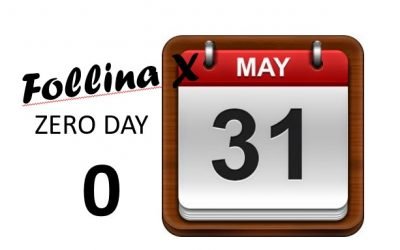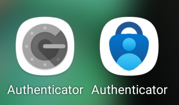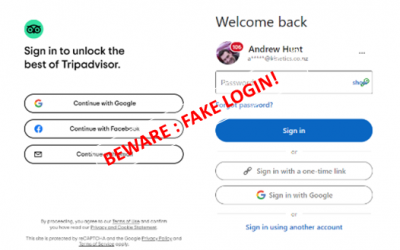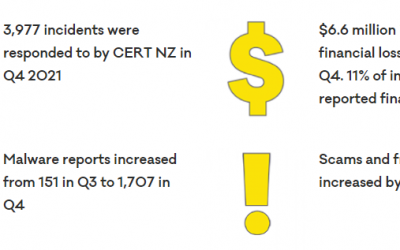Good practice last year isn’t good enough anymore.
Even cyber-insurance providers are getting more selective before accepting cover, or worse, before paying claims.
With the number of claims skyrocketing insurers are increasingly asking, “What did you do to protect yourself from the obvious and known risk from cyberhackers?”
The levels of protection you put in place 1 or 2 years ago probably aren’t adequate for the threats today. They are evolving so rapidly.

So what can you do?
Hackers aren’t waiting for you to make a decision to put protections in place.
They are spending every waking moment trying to find new ways of stealing your data. They have set themselves up as businesses to do evil. They hire the best and brightest talent, and have the latest tech – simply because it’s worth it. Its organised crime and these guys are the mafia of the modern age.
We see continuous hacks on most of our clients. These are attempts to penetrate their firewalls, or guess their passwords on Office 365. We see fake webpages through phishing attempts, and we see techniques to harvest password reset questions by asking for favourite teachers, or first cars, or favourite band on platforms like FaceBook.
That’s why your cyber-insurance and business continuity insurance providers will be starting to ask more demanding questions when you renew your cover. They are well aware of the risk and they want to know that you have taken all reasonable steps.
You need to be able to reassure them that you have:
- deep endpoint protection
- a penetration and vulnerability assessment
- data governance that is fit for purpose
- awareness programmes for all users and verification
- dark web monitoring
- multi-factor authentication and complex passwords
and so much more – the very items we have included in our KARE for Security services.
The question for you, and your insurer, is what level of protection is appropriate for your organisation so your insurer will cover you if you need to claim? That is why we have two levels of cyber-protection, and, because this isn’t static, it is why we keep investing and researching additional tools to help defend you from harm.
The Hackers are turning up their attacks on you – are you turning up your defences to match?
One quote we saw recently that rang true was:
“A cybercriminal only has to be lucky once, while a defender has to be lucky every minute of every day.”

What’s your next step? We’ve created a simple 9-point checklist to help you navigate the cyber-risk landscape and find the right solution for you.
3 billion devices are at risk. Does that include you? (it probably does)
An actively exploited high severity "zero day" cyber-security exploit has been found in the Google Chrome web browser. With over 3 billion users it will take some time for the update roll out to everyone. Meanwhile, everyone who uses Chrome on their PC is...
MFA is important, but it is no silver-bullet.
There are no silver bullets. No one can guarantee you won’t be hacked, but we can make it harder. We can reduce your cyber-risk by taking reasonable steps to make it harder to hack you. The key is to have layers of security, and to keep reviewing the technology in use...
Disaster at Kinetics
Sometimes, it feels like there is only bad news. All businesses face challenges with suppliers, our own people and even some of our customers. As managers, we work hard to get ahead of issues and create systems to mitigate problems, but there’s always something. ...
MS OFFICE ZERO DAY ATTACK – MAY 31st
One of the scariest news items to wake up to is that there is a ‘zero-day’ vulnerability in a common piece of software. That means that the hacking community has found an opportunity to hack a bit of software and there is no update yet – ‘zero’ days to apply a fix....
Beware – When Anti-Money Laundering (AML) CREATES a risk
That’s right. AML is not only frustrating to many of us, but it has also created cyber-risks. The irony isn’t lost on us. We’re honoured to support a large number of NZ law firms as clients, and it is a responsibility we take very seriously. Law firms handle such a...
Is MFA driving you mad?
Getting tired of having to open your phone for access? If so, you are not alone! But, its necessary. Hackers are counting on you suffering from an excess of having to reach for your phone to approve access, with something called “MFA Fatigue Attacks”.MFA Fatigue...
When QR codes go bad
Thanks to Covid, we’re all familiar with QR codes. Of course, with Covid, we were using the official tracer app to scan them, but in normal use, you can just use your phone’s camera to open the link. It’s a great way to make it easy to visit a website without having...
Is nothing safe? Fake logins!
Every day, there is a new cyber-threat to watch out for, and to warn friends and colleagues about. I’m frequently stunned when talking to friends and colleagues that these threats are abstract and academic. For the sake of absolute clarity, these cyber risks...
Hot off the press – we have just received CERT NZ’s report for the last quarter of 2021
So, just a quick reminder of who CERT NZ are – it’s the official NZ Government Cyber-Security agency. So, first up – 13% increase in reported incidents on the previous year and a big spike into the last quarter. 9% more phishing attacks. 24% more malware, based on the...
When hacking can help.
Ukraine is pretty well known for tech innovation. In fact it was worth $US6.8 Billion last year Ukraine’s Booming Tech Outsourcing Sector at Risk After Russian Invasion - WSJ. On top of that ‘legitimate’ work, Ukraine has also been home to some of the...










